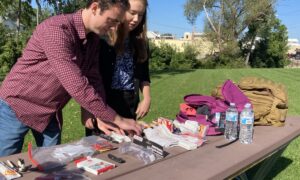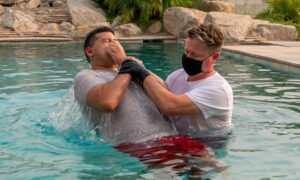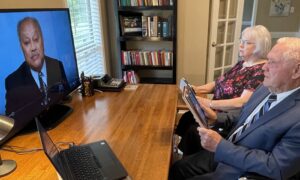Jehovah’s Witness prisoner of conscience Bahram Hemdemov was not freed in the February amnesty and an appeal on his behalf is now being prepared to the United Nations Human Rights Committee, Jehovah’s Witnesses told Forum 18 News Service. Despite rulings from the UN Committee in 2015 that the rights of four imprisoned Jehovah’s Witness conscientious objectors had been violated (both by their imprisonment and torture during their imprisonment), the Turkmenistan government has failed to expunge their criminal records, offered recompense or taken measures to prevent similar violations in future. No alternative to compulsory military service has been introduced. Pirnazar Hudainazarov, Chair of Parliament’s Legislative Committee, refused absolutely to discuss this with Forum 18. At the labour camp at Seydi where Hemdemov is being held, Muslim prisoners are too afraid to attend the prison mosque for fear of being branded “Wahhabis” and sent for harsher punishment, a former prisoner told Forum 18.
Jehovah’s Witnesses have expressed disappointment that 52-year-old prisoner of conscience Bahram Hemdemov was not included in the prisoner amnesty declared in February, when 1,485 prisoners were reportedly freed. All Hemdemov’s attempts to overturn his sentence on appeal have failed. “Since his imprisonment, officers have pressured him to confess to fabricated violations, subjected him to hard physical labour, and severely beaten him in retaliation for judicial complaints filed by his wife on his behalf,” Jehovah’s Witnesses lamented to Forum 18 News Service. No civilian alternative to compulsory military service has been introduced.
An appeal on Hemdemov’s behalf is being prepared to the United Nations (UN) Human Rights Committee, Jehovah’s Witnesses told Forum 18.
Hemdemov is being held in the general regime section of the Seydi Labour Camp, in the desert in the eastern Lebap Region. Many prisoners of conscience have been held there in recent years, including Jehovah’s Witness and Protestants. Many of these have been tortured in the camp in recent years (see Forum 18’s Turkmenistan religious freedom surveyhttp://www.forum18.org/archive.php?article_id=1676).
Muslims in the Seydi Labour Camp are too frightened to attend the prison mosque (see below).
No conscientious objectors to military service are known currently to be imprisoned. The last known imprisoned conscientious objector, Ruslan Narkuliyev, was freed in February 2015 (see F18News 18 February 2015http://www.forum18.org/archive.php?article_id=2039).
UN: rights violated
In March and October 2015 the UN Human Rights Committee found that Turkmenistan had violated the rights of four young men by imprisoning them for refusing compulsory religious service on grounds of religious conscience. The Committee also ruled that beatings and other maltreatment (such as a head being repeatedly bashed against a wall) of Zafar Abdullayev, Mahmud Hudaybergenov, Ahmet Hudaybergenov and Sunnet Japparov is torture and the government needs to provide reparations (see below).
The government is also under an obligation to arrest those guilty of the torture.
No one at the Foreign Ministry in the capital Ashgabad was available on 5 April to discuss with Forum 18 what measures – if any – have been put in place to compensate the four young men for the violation of their rights or to prevent others similarly having their rights violated.
The official who answered the telephone at Turkmenistan’s Mission to the United Nations in Geneva on 5 April told Forum 18 that Ambassador Atageldi Haljanov was unavailable and asked for questions to be sent in writing. The same day Forum 18 wrote to ask what steps the government has taken to recompense these four young men for the violations of their rights and what steps it has taken to prevent the violations (imposition of compulsory military service, torture) happening again. Forum 18 had received no response by the end of the working day in Switzerland.
New Religion Law, but no alternative service law
On 26 March, Turkmenistan’s parliament, the Mejlis, adopted a new Religion Law. The text had not been made public by 5 April (see forthcoming F18News article).
However, despite the UN Human Rights Committee’s reminder to Turkmenistan that guaranteeing those with conscientious objections to serving in the armed forces requires the provision of a genuine civilian alternative, the country has not adopted an alternative service law or any other civilian alternative to compulsory military service.
Turkmenistan offers no alternative to its compulsory military service. Article 41 of the Constitution describes defence as a “sacred duty” of everyone and states that military service is compulsory for men. Military service for men between the ages of 18 and 27 is generally two years. A proposed Alternative Service Law was reportedly drafted in 2013, but officials have been unable to tell Forum 18 if and when it might be adopted (see F18News 29 September 2014 http://www.forum18.org/archive.php?article_id=2002).
Pirnazar Hudainazarov, Chair of the Mejlis Legislative Committee, refused absolutely to discuss why no civilian alternative service has been introduced. “You shouldn’t call me – you need to speak via the Foreign Ministry,” he insisted to Forum 18 on 5 April. He then put the phone down without explaining why the Foreign Ministry needed to be involved. The telephone of Atamurad Tayliev, Chair of the Mejlis Committee on the Protection of Human Rights and Freedoms, went unanswered the same day each time Forum 18 called.
Raid, arrest, torture, prison term
Police arrested Hemdemov on 14 March 2015 during a raid on a meeting for worship in his home in Turkmenabad [Turkmenabat] (formerly Charjew), following which they tortured him. On 19 May 2015 a Judge at Lebap Regional Court sentenced him to the maximum four year prison term on charges of inciting religious hatred under Criminal Code Article 177, Part 2. The Judge also ruled that Hemdemov’s property should be confiscated (see F18News 21 May 2015http://www.forum18.org/archive.php?article_id=2063).
“The prison warden refused to allow anyone to visit Bahram Hemdemov in prison – including close relatives – until the time limit for appealing against the verdict had passed,” Jehovah’s Witnesses complained to Forum 18. “The warden thus prevented Bahram or a representative from appealing against the conviction.”
On 10 June 2015 the authorities transferred Hemdemov from his home town of Turkmenabad to the labour camp in Seydi.
Hemdemov’s wife, Gulzira Hemdemova, appealed to the Supreme Court in Ashgabad. However, the deputy chair of the Supreme Court found no basis to grant the appeal. In early August 2015, Hemdemov’s lawyer filed a supervisory appeal. On 25 August 2015, the Supreme Court denied the appeal because Hemdemov “propagates the religious beliefs of Jehovah’s Witnesses”, fellow Jehovah’s Witnesses told Forum 18.
Hemdemov’s address in prison is:
Turkmenistan
746222 Lebap vilayet
Seydi
uchr. LB-K/12
Afraid to attend prison mosque
Although the general regime Seydi labour camp has its own prison mosque, prisoners are afraid to attend, according to a former prisoner in the camp. “The mosque is open to any prisoner, but Muslim prisoners won’t go for fear of being branded a ‘Wahhabi’,” the former prisoner told Forum 18. “So at Friday prayers there are usually only about four or five people.” The former prisoner added that the prison library – which prisoners make good use of – has no religious literature.
The term “Wahhabi” is widely used in Central Asia for any devout Muslim, regardless of whether they do or do not commit or espouse violence.
Prisoners branded as “Wahhabis” are given harsh treatment and are often confined in special sections of prisons. In February 2015 in the strict regime Seydi Labour Camp, Muslim prisoners convicted of alleged “Wahhabism” were subjected to brutal beatings. One man suffered a broken hand, while another suffered a broken rib and damage to his lung.
Many imprisoned “Wahhabis” are also held in a closed section of the isolated top-security prison at Ovadan-Depe in the Karakum desert 70 kms (45 miles) north of Ashgabad (see F18News 18 February 2015 http://www.forum18.org/archive.php?article_id=2039).
Forum 18 has been unable to find out if these “Wahhabis” were imprisoned for exercising their right to freedom of religion or belief or for committing crimes.
Authorities frequently use torture
The authorities frequently use torture and violence, including violence apparently ordered by the government. In 2011 the UN Committee against Torture found that, in Turkmenistan “persons deprived of their liberty are tortured, ill-treated and threatened by public officers, especially at the moment of apprehension and during pretrial detention, to extract confessions and as an additional punishment after the confession” (see UN reference CAT/C/TKM/CO/1http://www.unhcr.org/refworld/docid/4ef0540f2.html).
This includes against the relatives and friends of 15 then-current and former conscientious objector prisoners who appealed to the UN Human Rights Committee between September 2012 and August 2013 against their imprisonment and maltreatment. The prisoners of conscience were in Seydi Labour Camp regularly subjected to spells in the punishment cell and some were brutally beaten (see F18News 21 March 2014 http://www.forum18.org/archive.php?article_id=1940).
After the UN sought information from the government about the complaints, the home of a prisoner was raided in January 2013 and individuals were beaten, threatened with rape and fined (see F18News 14 February 2013 http://www.forum18.org/archive.php?article_id=1801).
UN says rights violated
The four Jehovah’s Witness conscientious objectors – Abdullayev, Mahmud Hudaybergenov, Ahmet Hudaybergenov and Japparov – all lodged cases against Turkmenistan to the UN Human Rights Committee in September 2012. They complained both about their conviction and punishments for wishing to perform a civilian alternative service in place of the compulsory military service, as well as beatings and other torture they endured while imprisoned. Abdullayev also complained that he had been convicted and punished twice for the same “crime”.
In a 17 March 2014 response to the UN Human Rights Committee, the Turkmen authorities insisted all four were not eligible for exemption from compulsory military service and that each man’s criminal offence was “determined accurately according to the Criminal Code of Turkmenistan” and had been “considered carefully” by the courts. The response failed to address the issue of why the men had not been offered a civilian alternative to military service or why they had been tortured while imprisoned.
The UN Human Rights Committee issued its decisions in 2015 (Zafar Abdullayev v. Turkmenistan, 25 March 2015 (CCPR/C/113/D/2218/2012); Mahmud Hudaybergenov v. Turkmenistan, 29 October 2015 (CCPR/C/115/D/2221/2012); Ahmet Hudaybergenov v. Turkmenistan, 29 October 2015 (CCPR/C/115/D/2222/2012); Sunnet Japparow v. Turkmenistan, 29 October 2015 (CCPR/C/115/D/2223/2012)). The UN made public Abdullayev’s decision in May 2015, the other three in December 2015.
The Committee found in all four cases that the men’s right to freedom of religion or belief under Article 18 of the International Covenant on Civil and Political Rights had been violated.
“The right to conscientious objection to military service inheres in the right to freedom of thought, conscience and religion,” the Committee noted. “It entitles any individual to an exemption from compulsory military service if such service cannot be reconciled with that individual’s religion or beliefs. The right must not be impaired by coercion. A State may, if it wishes, compel the objector to undertake a civilian alternative to military service, outside the military sphere and not under military command. The alternative service must not be of a punitive nature. It must be a real service to the community and compatible with respect for human rights.”
The Committee found in all four cases that the men’s right to be free from torture under Article 7 of the International Covenant on Civil and Political Rights had been violated.
“The Committee takes note of the author’s claim that, when he was arrested on 4 September 2010, the police slammed his head against a wall and that, after his conviction, during the first 18 days of his detention he was beaten on four occasions,” the UN ruling in the case of Ahmet Hudaybergenov notes. “The author also claims that upon arrival at the LBK-12 prison on 8 October 2010, he was again beaten and that beatings continued regularly throughout his imprisonment. The State party has not refuted these allegations, nor provided any information in this respect. In the circumstances, due weight must be given to the author’s allegations.”
In Abdullayev’s case, the Committee found that his right not to be punished twice for the same offence under Article 14, Part 7 of the International Covenant on Civil and Political Rights had been violated.
“Under an obligation” to make reparation
All four judgments point out that under Article 2, Part 3a of the International Covenant on Civil and Political Rights, Turkmenistan’s government is “under an obligation” to provide the victims with an effective remedy. “This requires it to make full reparation to individuals whose Covenant rights have been violated. Accordingly, the State party is also obligated, inter alia, to expunge the author’s criminal record and to provide him with adequate compensation. The State party is under an obligation to avoid similar violations of the Covenant in the future, which includes the adoption of legislative measures guaranteeing the right to conscientious objection.”
The government has not expunged the criminal convictions of Abdullayev, Mahmud Hudaybergenov, Ahmet Hudaybergenov or Japparow, Jehovah’s Witnesses told Forum 18. Nor has it offered compensation. Nor has it adopted a civilian alternative to compulsory military service.
The UN Human Rights Committee said it “wishes to receive” from Turkmenistan its response on measures it had taken within 180 days. It also requested Turkmenistan to publish the Committee’s rulings in the cases.
Forum 18 is not aware that the Turkmen government has responded to the UN Human Rights Committee on Abdullayev’s case. However, it provided “brief” responses on the other three cases and “dialogue” is continuing, Jehovah’s Witnesses told Forum 18. (END)
http://www.forum18.org/archive.php?article_id=2164





